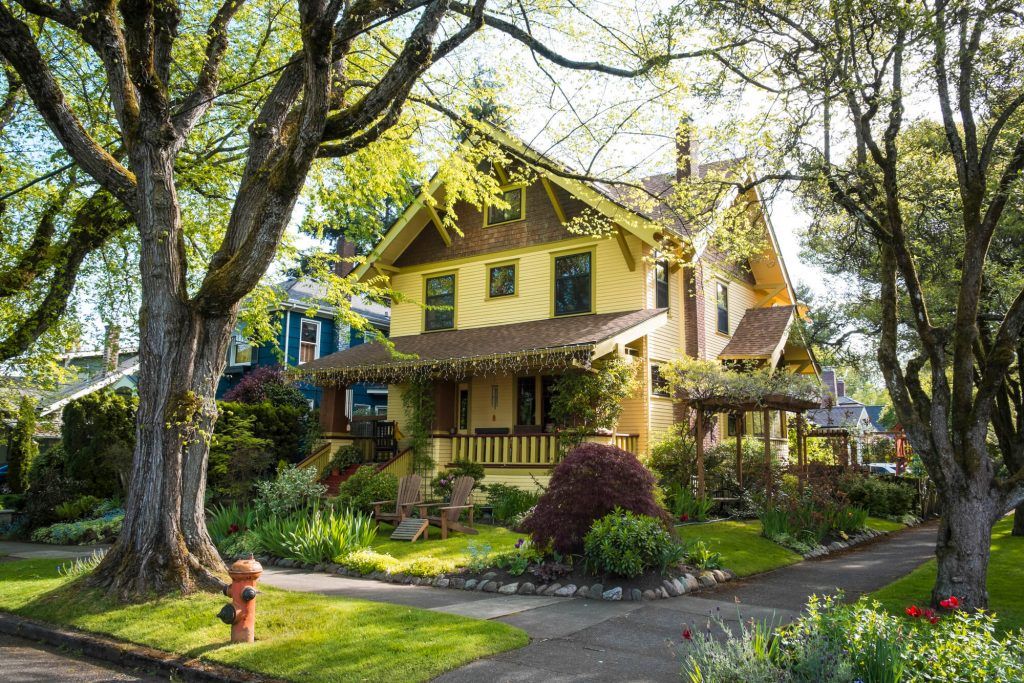
Nothing can sink your heart like the sight of an ant in your home. Where there is one ant, there are more ants. In fact, there are probably thousands of more ants. What’s a homeowner to do?
Don’t panic! The first step to handling an ant problem is to learn as much as you can. Ants may be fascinating creatures, but they are certainly not welcome in your home. Learn how to identify the ant species you’re dealing with and how to remove them from your home for good.
Why Do Ants Invade Houses
You may be wondering why ants are invading your home in the first place. The answer is actually quite simple. Like all animals, ants are constantly in search of food, water, and shelter. Your home is an excellent source for all of these needs.
Food is most likely the driving attraction of an ant invasion. Ants need food to survive and to feed their young. Many homes have food particles lying around that are perfect for ants like sugar, starches, and meat. Between improper food storage and inconsistent cleaning, there are several opportunities for ants to reach food in your home.
Other types of ants may be seeking shelter. Certain species look for wood to hollow out as a place to create their nest. These situations are more serious and may result in structural damage to the home.
Common Types Of Household Ants
Ants are not all the same. Different species of ants have different behaviors, habits, and habitats. Knowing exactly what you’re dealing with helps to determine which pest removal approach will be the most effective.
Soil Ants
Soil ant is a general term for a number of species of ground nesting ants. They live in large colonies of up to 200,000 ants and several hundred queens.
Characteristics of soil ants include:
- No more than ¼” long
- Dark brown to black in color
- Lifespan of six weeks to one year (queens can live up to two years)
If you notice an ant problem in your kitchen, it’s likely you’re dealing with soil ants. They are known to enter buildings to scavenge for food.
Soil ants will eat just about anything of nutritional value, such as:
- Dry pet food
- Dried meats
- Sugar
- Syrups
- Fruit
- Flower nectar
- Other insects
Moisture Ants
Moisture ants get their name from their tendency to use high moisture areas to create their nests. They are also known as yellow ants or cornfield ants due to their yellowish color. Moisture ants live in colonies with several thousands ants, but only one queen.
Characteristics of moisture ants include:
- No more than ⅛” long
- Range in color from yellowish brown to dark brown
- Feed on sweets, nectars, and proteins
Fortunately for homeowners, moisture ants only infest wood that is already decaying. They do not cause structural damage like carpenter ants.
You may find moisture ants in these areas:
- Behind tub wall tiles
- Inside a wall with a leaking pipe
- In damp areas like crawl spaces
Learn more about moisture ants
Carpenter Ants
Of all the ant species we’ve listed, carpenter ants can do the most damage to your home. A typical mature colony is home to between 10,000 and 20,000 carpenter ants or up to 100,000 for large colonies over a larger area.
Characteristics of carpenter ants include:
- A range of ⅛” to ½” in size
- Reproductive females can be as large as 1” and have two pairs of wings
- Black bodies and black or sometimes reddish legs
- Feed on insect honeydew, plant and fruit juices, and other insects
Carpenter ants make their nests by hollowing out galleries in pieces of wood. In forests, these ants serve an important function to help break down fallen trees. In houses, however, these ants can create extensive and costly structural damage.
In homes, nests are usually found:
- In wood
- In insulations
- In wall voids
Keep in mind that carpenter ants will travel up to 300 feet from the nest to forage for food.
Beware of colonies close to your home in rotting fence posts, stumps, old firewood, dead trees, or under stones or logs.
Learn more about carpenter ants
How To Get Rid Of Ants
For moisture ants or especially carpenter ants, you should contact a licensed pest control operator to eliminate the problem before serious damage occurs (or worsens). For soil ants, there are steps you can take to try to tackle the problem yourself. Here are a few good starting points:
Clean
As mentioned, most ants are looking for food. A good strategy is to make food hard to find. Use air-tight storage containers and clean your kitchen regularly. All it takes is a couple crumbs to attract ants.
Seal Entrances
See if you can follow the ants to their place of entrance into your home. Seal off these points — there are probably multiple — so that any remaining or future ants will be blocked.
Find the Source
If you can find the ants colony, you’re in business. Destroying the colony itself is your best shot at completely eliminating the problem.
Prevention
Of course, the best way to stop an ant invasion is to prevent it in the first place. Work with a pest control professional to create and execute a plan that is unique to your needs and maintains a perimeter barrier around your home.
These methods are a good place to start. However, if your ant problem is serious or persistent, you should consider bringing in professionals.
Need Professional Help?
There are a lot of methods you can try to get rid of ants in your home. However, the only true, long-lasting solution is professional pest control. EcoCare Pest Solutions can help.
At EcoCare Pest Solutions, we understand that certain areas of your home are more sensitive than others. Your kitchen — the place you eat and store food — is the last area you’d want harsh chemicals sprayed by an exterminator. That’s why we have a different approach.
We only use eco-friendly pest control products that are safe for people and pets. You don’t even have to leave your home during treatment! If you’re interested in learning more about how we can help eliminate your ant problem once and for all, contact us today to schedule an inspection.







